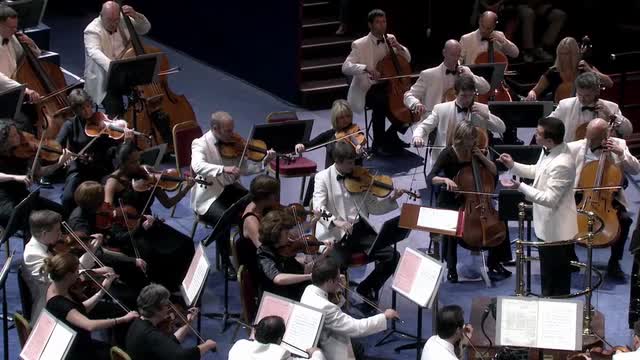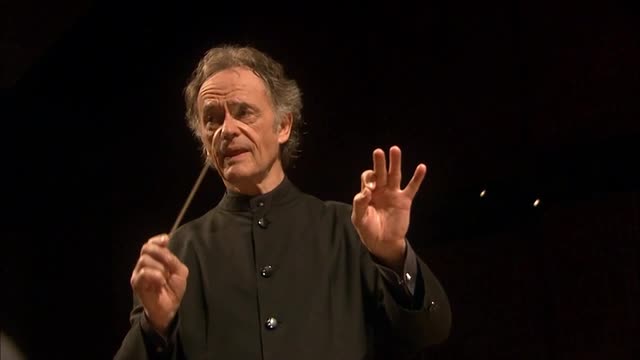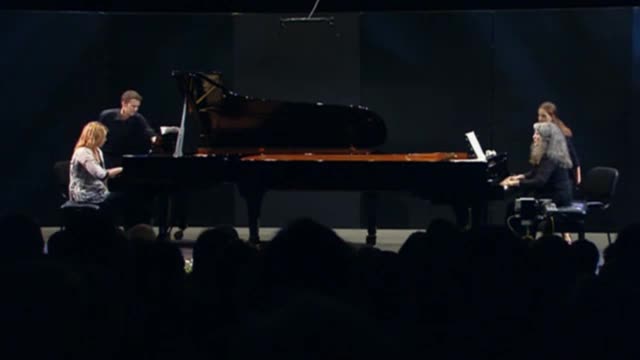Nelson Freire was a child prodigy: at three years of age he could play by ear what he heard his sister play. The local piano teacher rapidly became redundant so Freire’s parents, his father a pharmacist and his mother a schoolteacher, moved to Rio de Janeiro. Further sacrifices were made when the father had to take a job in a bank, but the problem with young Nelson was that his playing was already formed by the age of seven, so teachers found him difficult to train. Fortunately, he was presented to Lucia Branco, a pupil of the great Belgian pianist Arthur de Greef, himself a pupil of Liszt. Branco suggested that Freire should first learn with one of her own pupils Nise Obino, and it is to her that Freire claims he owes everything. Three months of intensive training with Obino prepared him for lessons with Branco, and he continued to study with both of them until the age of fourteen. From them he received a complete and thorough technical grounding; at one of his first lessons, when he was seven, he was shown three different touches: legato, staccato and a rippling style. Later he was to say of these early lessons, ‘There was no question for them of separating work on tone from finger practice, or music from technique. In fact, they founded their teaching on tone. Never force it, never produce a sound that is not harmonious.’ He gave many concerts at this time as a child prodigy and when he was twelve, Freire was asked to enter the first International Piano Competition in Rio de Janeiro; although most reference works state that he won this, Freire himself claimed in an interview that he was placed ninth out of twelve finalists.
Freire was then awarded a government-funded scholarship to study in Vienna with Bruno Seidlhofer and by the age of fourteen had in his repertoire fourteen piano concertos and major works by Brahms, Chopin, Schumann and Beethoven. By his own admission, Freire did not enjoy his time in Vienna, nor take advantage of Seidlhofer’s teaching. When Freire was in Vienna and not studying, he was either at concerts or listening to records, and it was at this time, when he was around fifteen years old, that he discovered Rachmaninov, Cortot and Backhaus. Of this period in his life he said, ‘I listened to records more than I worked.’
After leaving Vienna, he entered the Queen Elisabeth Competition in Brussels and did not pass the first round. He returned to Brazil, no longer a prodigy, finding it difficult to work at the piano. However, he was offered an engagement, and the concert, even though he had bad stage fright, was a success. He then had enough self-confidence to enter the Vianna da Motta Competition in Lisbon for which he learnt a sonata by Seixas in a few days. Freire won first place leading to concerts in Spain, Portugal and South America, but it was a recital in Munich and a broadcast on German television that really launched Freire’s adult career. He played throughout the world with the greatest orchestras such as the Berlin Philharmonic, London Symphony and Concertgebouw and conductors including Pierre Boulez, Eugen Jochum and Charles Dutoit; with Rudolf Kempe (with whom he was particularly fond of working) he toured the United States and Germany. In 1968 he made his debut in London where he was awarded the Dinu Lipatti Medal, presented to him by Harriet Cohen. His American debut was in Los Angeles in January 1969, whilst his New York orchestral debut was given in December of the same year when he played Rachmaninov’s Piano Concerto No. 4, and his recital debut there was at Hunter College in 1971. Since then Freire has played infrequently; when he returned to London it was after an absence of ten years.
Freire was a shy and retiring man who had a low profile as a performer and pianist. He continued the traditions of his friend Novaes and the great pianists of the Golden Age of the first half of the twentieth century. This was nowhere more apparent than in a disc of Chopin, the first project after his signing to Decca in October 2001. The Sonata in B minor Op. 58 has fluid, flexible phrasing, a warm tone (a legacy from Obino and Branco) and a beautiful sustained bel canto in the Largo. In the coupling of the Études Op. 25 the listener is always aware that these are pieces of music and not merely technical exercises. A second disc released in 2005 contains the Études Op. 10, the Piano Sonata in B flat minor Op. 35 and the Barcarolle and is of an equally high standard.
Freire made his first recordings for CBS in 1968, having been signed by that company following his Wigmore Hall recital in London the same year. Concertos by Tchaikovsky, Grieg and Schumann and Liszt’s Totentanz reveal a young virtuoso of twenty-four with great gifts and talent. Other recordings made for CBS at this time include Chopin’s Préludes Op. 28 and Sonata in B minor Op. 58, four impromptus by Schubert and Brahms’s Sonata in F minor.
Released live recordings from the 1970s and 1980s reveal Freire as an astounding virtuoso. He was one of the pianists who can play a Godowsky paraphrase of a Strauss waltz with a complete understanding of the style. The music swirled and breathed; he cajoled his listeners rather than beaten them into submission. In this respect Freire was comparable to Shura Cherkassky with his attention to sound and elasticity of tempo. Yet he also had the impetuosity, fire and fantasy of his friend and fellow South American Martha Argerich which he displayed in a glorious performance of Schumann’s Fantasie Op. 17 recorded live in 1984.
© Naxos Rights International Ltd. — Jonathan Summers (A–Z of Pianists, Naxos 8.558107–10).
| Title | |
| BRINGUIER, Lionel / FREIRE, Nelson: Live at the Royal Albert Hall (BBC Proms, 2010) | |

|
BRINGUIER, Lionel / FREIRE, Nelson: Live at the Royal Albert Hall (BBC Proms, 2010)
Composers:
Berlioz, Hector -- Chopin, Fryderyk -- Gluck, Christoph Willibald -- Ravel, Maurice -- Roussel, Albert
Artists:
BBC Symphony Orchestra -- Bringuier, Lionel -- Freire, Nelson
Label/Producer: Bel Air Classiques |
| Orchestral Music - BEETHOVEN, L. van / GLUCK, C.W. / TCHAIKOVSKY, P.I. (Concert du Nouveau Siecle) (Freire, Lille National Orchestra, Casadesus) | |

|
Orchestral Music - BEETHOVEN, L. van / GLUCK, C.W. / TCHAIKOVSKY, P.I. (Concert du Nouveau Siecle) (Freire, Lille National Orchestra, Casadesus)
Composers:
Beethoven, Ludwig van -- Gluck, Christoph Willibald -- Tchaikovsky, Pyotr Il'yich
Artists:
Casadesus, Jean-Claude -- Freire, Nelson -- Lille National Orchestra
Label/Producer: Bel Air Classiques |
| Piano Duo Recital: Freire, Nelson / Argerich, Martha - CHOPIN, F. / DEBUSSY, C. / RACHMANINOV, S. / RAVEL, M. | |

|
Piano Duo Recital: Freire, Nelson / Argerich, Martha - CHOPIN, F. / DEBUSSY, C. / RACHMANINOV, S. / RAVEL, M.
Composers:
Chopin, Fryderyk -- Debussy, Claude -- Rachmaninov, Sergei -- Ravel, Maurice
Artists:
Argerich, Martha -- Freire, Nelson
Label/Producer: EuroArts |
| VERBIER FESTIVAL HIGHLIGHTS 2007 | |

|
VERBIER FESTIVAL HIGHLIGHTS 2007
Composers:
Bartok, Bela -- Bizet, Georges -- Debussy, Claude -- Liszt, Franz -- Lutoslawski, Witold -- Ravel, Maurice -- Schubert, Franz -- Schumann, Robert -- Tchaikovsky, Pyotr Il'yich
Artists:
Argerich, Martha -- Bell, Joshua -- Capucon, Renaud -- Davis, Andrew -- Freire, Nelson -- Grimaud, Helene -- Kissin, Evgeny -- Maisky, Mischa -- Montero, Gabriela -- Quasthoff, Thomas -- Shoji, Sayaka -- Tomter, Lars Anders -- UBS Verbier Festival Orchestra -- Vogt, Lars
Label/Producer: EuroArts |
